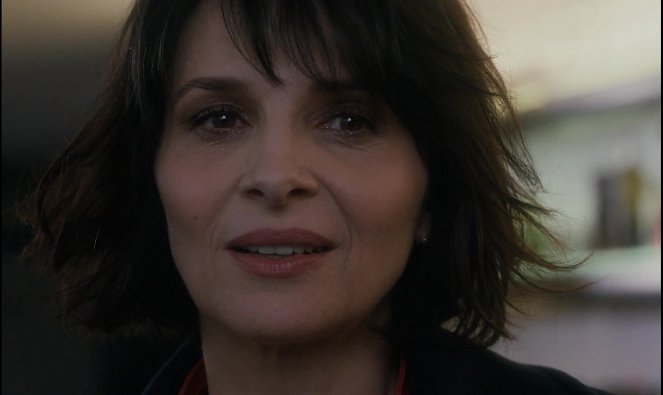Rendező:
Claire DenisOperatőr:
Agnès GodardZeneszerző:
Stuart A. StaplesSzereplők:
Juliette Binoche, Gérard Depardieu, Valeria Bruni Tedeschi, Nicolas Duvauchelle, Josiane Balasko, Xavier Beauvois, Alex Descas, Bruno Podalydès (több)Tartalmak(1)
Isabelle (Juliette Binoche) egy Párizsban élő vonzó, erős szexuális aurával rendelkező nő, aki elvált festőművészként kezd új életet és igyekszik megtalálni az igaz szerelmet. Ez nem mindig könnyű, így először egy lehengerlő stílusú bankárral kerül kapcsolatba, később egy csinos, ámde zavaros lelkületű színésszel, majd egy érzékeny és szelíd művész lesz partnere, végül pedig egy igazán csábító férfi. De vajon ki az igazi? Megtalálja-e Isabelle azt, amire minden nő vágyik? (Cinenuovo)
(több)Recenziók (2)
Még ha a főszereplőből a végén nem fejlődött volna ki egy érett, kétségbeesett nő, aki nincs tisztában a saját személyiségével, és nem képes felmérni a körülötte lévő emberek hozzájárulását/befolyását az életére, akkor is a film csak unalmas beszélgetős darab marad, banális gondolatokkal és elmélkedéssel a párkapcsolati keresésről, ahogy azt mindannyian ismerjük életünk valamilyen szakaszából (és a moziban csak eredeti és poénos csomagban szeretnénk látni, aminek ez a film a teljes ellentéte).
()
When it comes to love, words can be just as unsatisfying as the climax-less sex with which Claire Denis’s new film begins (and which is not the only kind of sex found here). Following the example of Barthes’s A Lover’s Discourse: Fragments, we find out why the protagonist’s emotional and love life is unsatisfying from an episodic series of her encounters with both familiar and newfound lovers. They differ in appearance, intellect and class affiliation. Some of them are not self-assured at all, others are overconfident. Isabelle is an attractive woman who draws the attention of men with her short skirts and tall high-heeled boots. However, few of her partners are able to correctly decode the signals that she sends as an expression of need for understanding rather than for unsatiated lust. However, Isabelle herself doesn’t know exactly what she wants and, in some ways, seems as thoughtless as her partners. It’s no wonder she can’t maintain her happiness even when she meets a man who doesn’t push his ego (like a dung beetle pushing a ball) in front of himself and with whom she apparently feels good. It seems that Isabelle can only be honest with people from whom she receives no promises and to whom she is not afraid to expose herself completely, at least with words. When asked a polite question by a man she regularly runs into at the fish shop, she truthfully replies that she is not well. Similarly, she is not afraid to tell a taxi driver that she is unhappy. The cyclical nature of the situation in which she finds herself and which stems from the fact that she constantly seeks validation from others (who doesn’t?) is humorously summed up in the final conversation with the clairvoyant, who turns out to be another egoist acting only in his own interest. The entire film follows the protagonist’s failed attempts at successful communication in which the partners speak the same language and are able to tell each other (even without words) what bothers them, what they like, what they desire, what they want from each other. Denis maintains a slightly ironic distance not only from the relationship problems of the Parisian bohemians, but also from her protagonist, who confides to a friend that she stayed with a possessive banker mainly because she was turned on by the idea of sleeping with an “old scumbag”, thus basically blending fact and fantasy. But a relationship based on an illusion is not sustainable in the long run. Sooner or later, there must be an awakening, expressed in the bar scene by the slow movement of the camera away from the two actors (contrasted with the briskly flowing dialogue based on the conscious acceptance of a certain role, shot by panning between the two actors instead of using the traditional shot/counter-shot technique). Let the Sunshine In is not a typical French comedy with broadly accessible humour that wraps its ideas up in nice phrases, but a maximally unobtrusive, beautifully sad comedy of manners (with a touch of class satire) in which (as in the discourse of lovers) every gesture, every word and every pause bears meaning. It is thus important that the actors, especially the amazing Juliette Binoche, are able to sum up a long list of reasons for their contempt or the multi-year history of one interrupted stint of living together with an almost imperceptible change of expression or with the way they say certain words. Thanks to the accuracy and matter-of-factness with which it depicts the various phases of coming together and breaking up and how relationships can be both fulfilling and frustrating, Let the Sunshine In is one of the best films about love and communication.
()
(kevesebbet)
(több)

